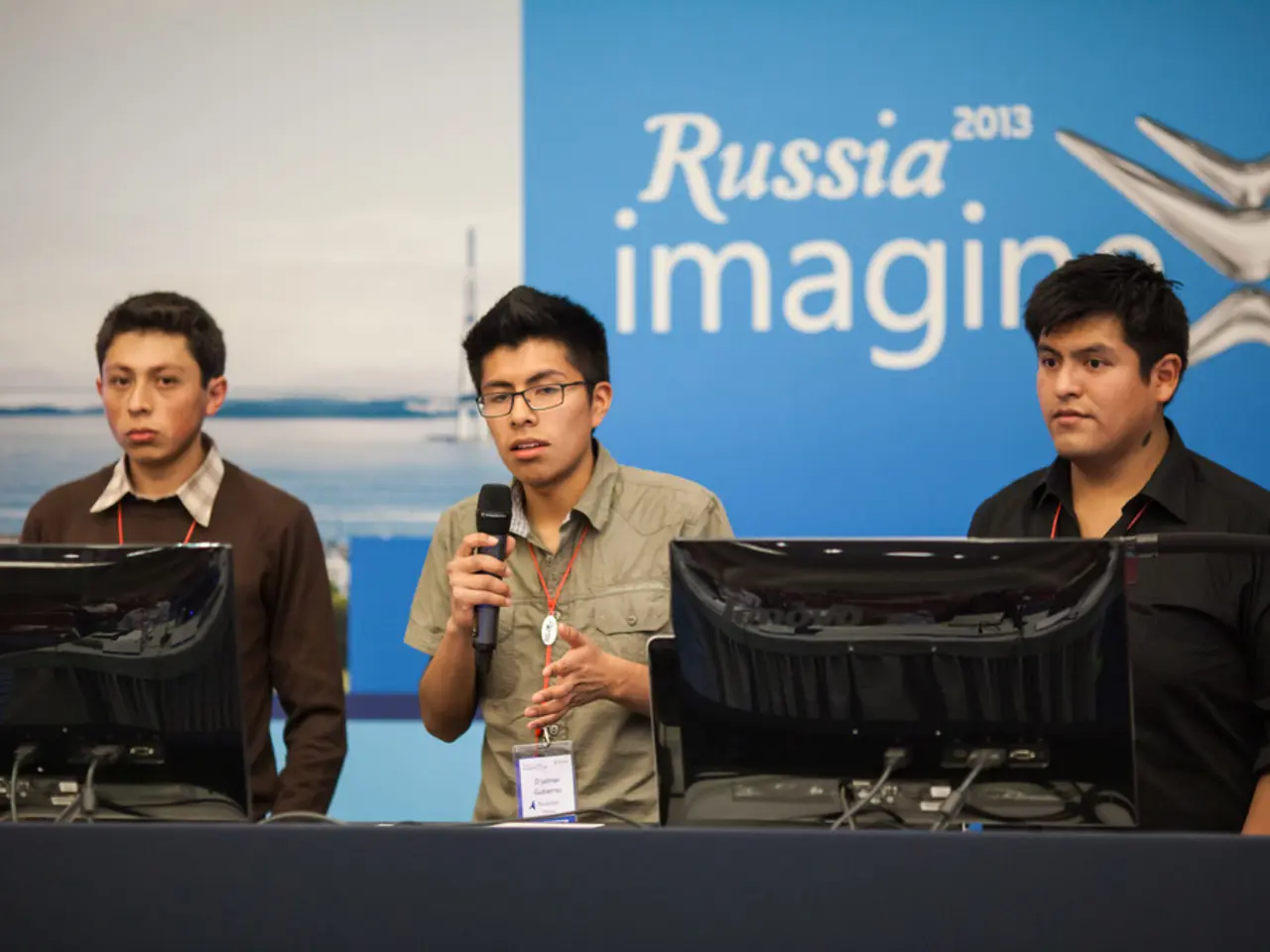Zelensky pursues assurances of protection from Trump
In the ongoing crisis, Europe is actively pursuing the creation of an alternative security framework for Ukraine, acknowledging the current uncertainties surrounding NATO membership. With the need for credible guarantees against Russian aggression, several approaches have emerged as potential solutions.
Interim Security Framework Linked to NATO Standards
Given the uncertainty of immediate NATO membership, a proposed interim framework focuses on bolstering Ukraine's defense capabilities. This includes the urgent delivery of advanced weapons such as air defense and artillery, secure communications, logistics, and deeper integration with NATO operational practices. The aim is to build interoperability through joint exercises and embedded training. Additionally, this framework seeks to reduce bureaucratic hurdles to boost Ukraine's domestic arms production and defense industry cooperation with NATO countries, thereby enhancing sustainable resistance capacity [1].
Layered Security Guarantees (Non-NATO)
Recognizing political limits and opposition to U.S. troops in Ukraine, a layered approach of security guarantees is suggested. This might involve a civilian monitoring mission led by credible international organizations, partnerships modeled on programs like the U.S. National Guard State Partnership Program, and multiple complementary measures to bolster credibility and deterrence [2].
Armed Neutrality
Another alternative is for Ukraine to declare a status of permanent or armed neutrality, remaining outside military alliances but maintaining a strong self-defense capability. This model envisions a heavily fortified Ukraine capable of self-defense, with binding Western security assurances. International legal precedent, as with Switzerland or Austria, allows neutrality combined with political and economic alignment against aggression. However, any neutrality would need to be clearly defined to avoid exploitation by Russia [3].
"Article 5-Like" Security Arrangement Outside NATO
A bespoke collective defense pact inspired by NATO’s Article 5 but independent of NATO’s formal treaty might be devised. This would not grant Ukraine NATO membership but would create explicit commitments among signatories to defend Ukraine against attacks. The effectiveness depends on precise language detailing who acts, how, and how quickly. However, skepticism exists due to past failures to uphold security assurances like those from the 1994 Budapest Memorandum [4].
Multilateral Security Guarantees Involving Major Powers Including China
Russia has proposed a framework involving Ukraine’s permanent neutrality guaranteed by a coalition of major powers, particularly the five permanent members of the UN Security Council (UK, China, France, Russia, USA), possibly expanded to others such as Germany and Turkey. China may take a peacekeeping role under UN mandate if a ceasefire occurs, though some Western actors are wary of Beijing’s impartiality and strategic motives. This model hinges on multilateral agreement, including Russia’s demands for Ukrainian neutrality and non-alignment with military blocs [5].
In summary, alternatives range from enhanced military and political integration with NATO short of membership, layered international security mechanisms, armed neutrality with Western backing, bespoke collective defense pacts outside NATO, and multilateral security guarantees involving global powers. Each reflects different political constraints, trust levels, and strategic calculations around deterring Russian aggression while securing Ukraine's sovereignty. The prevailing expert analysis advises that no alternative currently matches NATO membership in guaranteeing robust security, but recognizes these alternatives as pragmatic interim or negotiated frameworks given the current realities [1][2][3][4][5].
Stay updated on the latest developments with our Google news channel. As the situation evolves, so too will the discussions and negotiations surrounding Ukraine's security. The potential for future Russian attacks on Ukraine remains a significant concern, and the creation of an alternative security framework is seen as a crucial step in addressing these concerns.
- As the conversations around Ukraine's security continue to evolve, war-and-conflicts, politics, and general-news are all central topics given the potential for future Russian attacks and the ongoing discussions about an alternative security framework.
- The alternatives being proposed to ensure Ukraine's security, such as an interim security framework linked to NATO standards, layered security guarantees, armed neutrality, Article 5-like security arrangements outside NATO, and multilateral security guarantees involving major powers, all reflect the political complexities and strategic calculations surrounding the deterrence of Russian aggression and the preservation of Ukraine's sovereignty.




